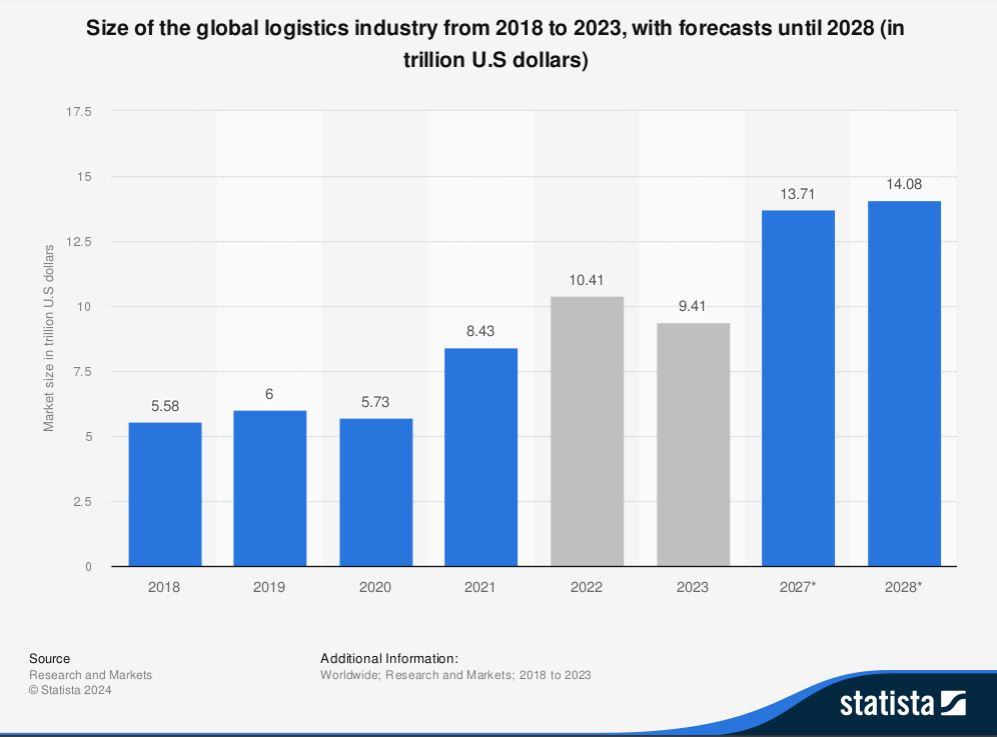
National Logistics Day, celebrated on June 28th, serves as a reminder of the essential role logistics plays in our daily lives and the economy. It is a day to appreciate the hardworking professionals who ensure the efficient movement of goods, services, and information across the globe.
In 2023, the global logistics industry grew to about 9.41 trillion U.S. dollars, recovering from the COVID-19 pandemic, according to a Statista report. By 2028, the logistics industry is expected to reach over 14.08 trillion U.S. dollars.

Several key factors are changing the logistics sector right now:
- Technology Integration: The adoption of advanced technologies like the Internet of Things (IoT), Artificial Intelligence (AI), and blockchain is enhancing efficiency and transparency in supply chain management.
- E-Commerce Growth: The surge in online shopping has led to increased demand for logistics services, particularly in last-mile delivery and reverse logistics.
- Sustainability Focus: There is a growing emphasis on reducing the environmental impact of logistics operations, leading to the adoption of green logistics practices and alternative fuel vehicles.
- Globalization: As businesses expand their reach, the need for robust international logistics networks becomes more crucial.
- Labor Shortages: The industry faces challenges in recruiting and retaining skilled workers, particularly drivers and warehouse staff.
The Road Ahead
Looking forward, the logistics industry must navigate several potential obstacles while capitalizing on new opportunities:
- Supply Chain Resilience: Companies are re-evaluating their supply chains to ensure they can withstand disruptions like those caused by the COVID-19 pandemic.
- Customer Expectations: Consumers are demanding faster, more reliable delivery services, putting pressure on logistics providers to innovate.
- Regulatory Changes: The industry must adapt to new regulations related to safety, emissions, and international trade.
- Collaborative Models: There is a trend toward collaboration between logistics companies, technology providers, and customers to create more integrated and efficient supply chains.
The logistics industry is at a pivotal point, with significant growth on the horizon. By embracing innovation and addressing challenges head-on, the industry can continue to be a driving force in the global economy.
Let Express Help You Land a Career in Logistics
Express Employment Professionals is a full-service staffing company and a leader in the logistics and freight forwarding industry. Each year, Express helps more than 30,000 companies with logistics staffing and puts more than 260,000 people to work in this vital industry.
If you have any questions about logistics jobs in your area or about your job search in general, contact your local Express office, download the ExpressJobs app from your mobile store, or fill out our online contact form.
Last Updated on August 15, 2025